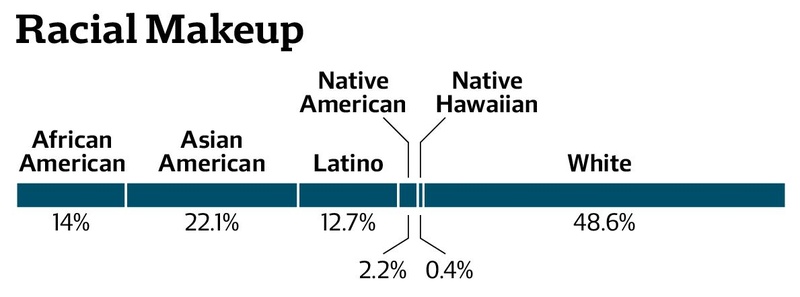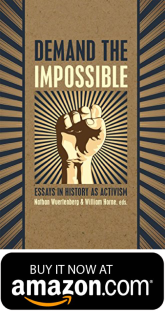by Adrienne Keene
“You have to get comfortable with being lonely”
–Sherman Alexie, giving advice for Native students who choose to strike out away from their community
It was our seventh lecture together, and I had assigned Eve Tuck and Wayne Yang’s 2013 “Decolonization is not a metaphor,” a challenging piece that I was worried might be over the heads of the group gathered before me. Looking out at the lecture hall I saw eighteen young, eager Native faces, ready to tackle whatever I threw at them. This summer was the inaugural College Horizons Scholars program, a bridge program for Native students from all over the country to come together to focus on academics and wellness, and get ready for college. My role was as the faculty member for their lecture class, which I called “Settler Colonialism, Resistance, and Resilience.” We met just eight times, and I took my role seriously. I needed to give them academic armor to get through what I knew would be tough times ahead.

We launched in—and ten minutes later they were breaking down “settler moves to innocence” (the ways settlers use rhetorical and other strategies to disassociate themselves from the ongoing effects of settler colonialism), asking thoughtful questions about the role of descendants of enslaved Africans and non-white immigrants in the settler colonial project, making connections between previous classes on gender and indigenous feminisms, capitalism, racial formations, and more. As we engaged in a lively back and forth, punctuated with jokes and laughter, I almost started to cry.
This is why I do this work. This is why I struggle and push and fight in the whitest, most colonial spaces imaginable to break down barriers and make it easier for Native students—these students. Because they will get to campus and feel that they are not good enough, or that they are not meant to be there, and they will need to remember those weeks in our class where their syllabus was full of Native scholars, their identities were celebrated and affirmed, and their voices were heard. They will need to remember that there is power in knowledge and power in their education.
After seven years of fighting through graduate school, a post doc, and a year as faculty, I was finally able to create the educational space that I knew was possible. One that had high expectations and constant moments of mind-blowing knowledge drops, where Native knowledges and experiences were normalized, where the structure of settler colonialism was situated as an intrusion, the source of our struggles, not the norm that we don’t “fit” into. That space gave me so much hope.
Academic life as a woman of color (even a white coding one like me) is often lonely. It is meetings upon meetings upon meetings about “diversity issues,” and lines of struggling students of color at office hours wanting advice and help. It is attending 10 events a week to support the communities on campus. It is the extra unpaid and expected labor, which doesn’t “count” in a system not meant for us. It is, despite this, feeling like we’re not doing enough for our students, or seeing them turn against us when they feel we’re not radical enough, activist enough, decolonial enough.
Academic life is hope. It is believing that spaces of academic power and privilege can be sites of resistance and change. It is knowing the skills and credentials gained can be leveraged for our people. It is writing this post because I want others to not feel alone and for our institutions to know that they can do better.
Academic life, as a Native woman, is realizing that your physical presence is unsettling to those in power, because your body and existence are a reminder of a horrific history they’d like to forget. It is quietly smiling and calmly explaining over and over colonialism and blood quantum and boarding schools and still hearing that you’re not a “real Indian.” It is often being the only one in a space, it is having well meaning and lovely mentors and colleagues but not ones that actually can fully “get it”—even if they try. It is feeling like you’re not doing enough to support the Native students on campus, and feeling like a failure each time another one has to take time off. It is constantly wondering if forcing yourself into a space designed by those who wished to destroy you and your ancestors is the right path for lifting up your people.
But academic life is also teaching, standing in front of a class of beautiful, bright, and hopeful faces, and watching them learn—changing their perceptions and vocabularies about Native peoples. It is eating snacks sprawled on the floor at Native student group meetings. It is watching my students walk across the stage at graduation, knowing how hard they worked. It is having my voice heard in spaces where Native voices have been ignored for 500 years. It is knowing that my research has an impact. It is knowing that if I weren’t here in this space, things would be worse. It is using my privileges to challenge oppression. It is building a network and community that stretches over thousands of miles and through dozens of campuses. It is knowing that I’m making it easier for the Native students behind me.
It is the joy I find in small moments of decolonization—when I hear my poorly accented Cherokee introduction crackle and echo through a microphone, when I call upon the Native peoples of the land on which I stand and center them before beginning a talk. It is watching how things are changing, for the better. It is seeing dozens of Native American or Indigenous Studies professor positions posted in the last few years, and thinking about the impact those faculty members, and hopefully I, will have on our campuses. It is the privilege to write about things I care deeply about, and to have people listen. It is giving myself permission to be an early career scholar, to make mistakes, and to continually learn. It is resistance and it is a fight. But it is also power.

Academic life is hope. It is believing that spaces of academic power and privilege can be sites of resistance and change. It is knowing the skills and credentials gained can be leveraged for our people. It is writing this post because I want others not to feel alone and for our institutions to know that they can do better. It is, despite all of this, choosing to be here—because I believe.
So when I scroll through my College Horizons Scholars Instagram pages, and I see them during these early weeks of the semester with their new roommates and friends, smiling on campus quads throughout the indigenous lands of this country, I know that I have made the right choice, that despite the struggle and the fight it’s worth it. They’re entering college knowing who they are as Native people, knowing that they have a right to be on those campuses, knowing that they bring with them powerful medicine and prayers, but also knowing that they have to get comfortable with being lonely.
 Adrienne Keene is a Citizen of the Cherokee Nation, and an Assistant Professor of American Studies and Ethnic Studies at Brown University. Her research is with Native students navigating the college process, looking at college access, transition, and retention, as well as the role of culturally grounded pre-college access programs in student success. She is also interested in issues of cultural appropriation, representations, and activism for Native peoples, and writes about these topics on her blog Native Appropriations (nativeappropriations.com). You can find her on twitter talking about the latest Native current events, fashion, critical race theory, and breakfast foods @NativeApprops.
Adrienne Keene is a Citizen of the Cherokee Nation, and an Assistant Professor of American Studies and Ethnic Studies at Brown University. Her research is with Native students navigating the college process, looking at college access, transition, and retention, as well as the role of culturally grounded pre-college access programs in student success. She is also interested in issues of cultural appropriation, representations, and activism for Native peoples, and writes about these topics on her blog Native Appropriations (nativeappropriations.com). You can find her on twitter talking about the latest Native current events, fashion, critical race theory, and breakfast foods @NativeApprops.
* * *
Our collected volume of essays, Demand the Impossible: Essays in History As Activism, is now available on Amazon! Based on research first featured on The Activist History Review, the twelve essays in this volume examine the role of history in shaping ongoing debates over monuments, racism, clean energy, health care, poverty, and the Democratic Party. Together they show the ways that the issues of today are historical expressions of power that continue to shape the present. Also, be sure to review our book on Goodreads and join our Goodreads group to receive notifications about upcoming promotions and book discussions for Demand the Impossible!
* * *
We here at The Activist History Review are always working to expand and develop our mission, vision, and goals for the future. These efforts sometimes necessitate a budget slightly larger than our own pockets. If you have enjoyed reading the content we host here on the site, please consider donating to our cause.



Pingback: On Loneliness and the Reason Why: Experiences as a Native Academic - Uncensored
Pingback: Editors’ Pick: Our Favorites from a Year of #ActivistHistory – The Activist History Review